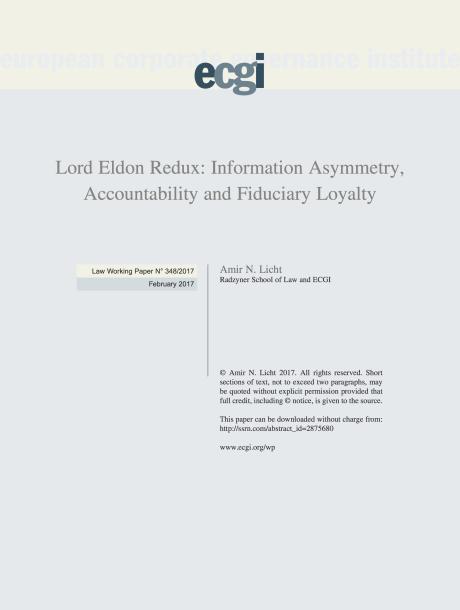
Lord Eldon Redux: Information Asymmetry, Accountability and Fiduciary Loyalty
Abstract
This article investigates the development of accountability and fiduciary loyalty as an institutional response to information asymmetries in agency relations, especially in firm-like settings. Lord Eldon articulated the crucial role of information asymmetries in opportunistic behaviour in early nineteenth century, but its roots are much older. A thirteenth century trend toward direct farming of English manors and the transformation of feudal accounting after the Domesday Book and early Exchequer period engendered profound developments. The manor emerged as (possibly the first) profit-maximizing firm, complete with separation of ownership and control and a hierarchy of professional managers. This primordial firm relied on primordial fiduciary loyalty - an accountability regime backed by social norms that was tailored for addressing the acute information asymmetries in agency relations. Courts have gradually expanded this regime, which in due course enabled Equity to develop the modern duty of loyalty. These insights suggest implications for contemporary fiduciary loyalty.





